florence, jacques, and danielle delécluse
<a disclaimer about this interview: at the time i talked to delécluse he was a little bit slow at talking, but almost fully lucid. however, my research shows some inaccuracies between what i learned from him during this interview and articles done by frederic macarez. if you have insight on some of these details, please share in the comments!>
in august of 2014 i sat down at the beach house of jacques delécluse with him, his wife danielle, and his daughter florence. florence was interpreting. i would ask each question in english, then she would ask mr. delécluse in french. then she would explain it back to me in english. sometimes florence or danielle would expand on a certain topic based on her memory or knowledge of the subject, which was also extremely interesting and useful. i’ve indicated both florence and danielle’s comments in italics.
let's start at the beginning. how did your career start?
i started really early on both piano and percussion. i went to the paris conservatory for both instruments. during my time there, i won the first prize at the conservatory for percussion and piano, and i was the first person to do that. i won first on piano, then on percussion the next year. after conservatory, i started a 5-person ensemble with pierre boulez called du martu somet, or the hammer with no name. we used vibraphone, marimba, xylorimba, and other things.
when was this?
1952 or ’53.
how did the ensemble get going?
well, we started with one concert, and it went so well that we schedule 3 or 4 more. after a while we would schedule concerts just to have a reason to improve at playing. we went to berlin with boulez to play petrushka at one point. we even recorded an album.
was that before or after the opera?
i started at the opera in 1957. it was a job for both percussion and piano, which continued through my whole career. to be honest, i don’t remember if that petrushka concert was before or after i started in the opera. you see, i’m an artist so i didn’t write everything down while i was working. if i had a concert in marseilles or lilies, i didn’t necessarily write it down.
are you aware of how popular the douze études are in the united states?
no.
they’re in pretty much every audition for orchestra, college, and youth symphony.
i really love to hear that.
what inspired you to write these pieces?
florence: i can tell you about what i remember when my father used to write. he would sit at this table right here <points to the kitchen table>. he taught at the conservatory in the morning and played in the opera by night, so during the day he was with his family and would compose.
the purpose of my composition is they are for you, the student. they are supposed to give new students pleasure. to learn with pleasure. <he uses the french word ludique, which means fun, playful, entertaining.> for me, what i was writing was not important - what was important was the way you’d receive what i was writing. the pleasure it gives you to learn, to study, to improve, was important. the études were supposed to help motivate you to progress.
in what order did you write the douze études?
i would write one étude, then 2 and 3, then i’d love them for a while and do something else. then i’d return to them and make sure they were good. sometimes i’d rewrite them, sometimes i just stopped and threw them away. there were a lot of études that were never published.
wow, more études?
the reason i didn’t publish all of them was because some were too similar to others that had already been published. i have a perfectionist personality, so i wouldn’t want something lower quality to get published.
i see. are students supposed to start at étude 1 and continue through the book?
they can start wherever they want. the études do get more difficult from beginning to end, but not in a regular way. that’s the same for the douze études and for the method de caisse-claire.
what is the purpose of the method?
the style of the method is really simple. it’s for beginners. you need to already play caisse-claire, but the level is really simple. the pieces are like small chunks of homework for the student. they are exercises. they’re progressively difficult, but still, you can jump around in the book and not play them in order.
do you have a favorite étude out of the twelve?
no.
why did you stop at twelve?
i don’t know.
florence: these études were written in 1964, but i remember he wrote a lot after that.
yes, i wrote small things for percussion and piano. the music that i wrote for piano was small études, just like on percussion.
do you have any practice tips or methods for students?
well, you have to do them exactly the way i wrote them. but you also have to internalize the rhythmic melody. you have to play it like it’s coming from you. you do have to play what’s written, and all the details on the page, but they have to represent the rhythmic melody that you’re feeling. it’s a paradox. you have to feel something inside of yourself, but play what’s written. it’s like a painter. a painter has a model, so you have to paint what you see. but you also have to interpret it in the way that you see it, through your own eyes. there are so many details, and you also have to respect what’s written.
i’m really glad to hear that. can you expand on that? one of the details is tempo. is that something that the musician can adjust based on how their personality or style?
the caisse-claire is an instrument just like any other. so, for the tempo, they can do what they want. <he uses the french word facultative, which mean ‘optional.’> just don’t do something boring. the excitement is more important than the details.
florence: he never loved boring things, so percussion must be exciting.
but the pieces are also so difficult and technically demanding.
technique and musicality go together - the must live together. one without the other makes no sense.
were they as fun to write as they are to play?
i liked to write. what was difficult for me was that i didn’t want to write the same thing twice.
florence: that’s why some études are still at home. for him, he was so professional and strict that he didn’t want to do the same thing twice. it was hard to find new things to write. it was so easy to say, “let’s do it again with a small difference.” but he wasn’t ok with that.
when you were in school, how did you practice?
one thing i used to do was to get together with other musicians and play together. we formed an ensemble with around 5 people. we had a goal of finding more perfect ways to play. sometimes we’d work on things very, very quietly, and the next day we’d be very strong. it was our particular way we found to improve. it was like a chamber music experiment. i did one for percussion and one for piano. piano was more difficult because you have to have the same emotion, and it’s hard to see all 5 people behind pianos. i did all the arrangements. it was contemporary music, but arranged for the specific ensemble. it would be by pierre boulez, arranged by jacques delécluse. the ensemble was like a ‘cooker’ and we worked on making music with a particular ‘sauce.’ no conductor - that’s what made it difficult.
what’s your favorite opera to play?
italian opera, like puccini and verdi. all the big, dramatic italian opera was my favorite.
if there was no piano in the opera, what would you play?
bass drum.
<everyone laughs.>
me too! what are some differences between french and american percussion playing?
i don’t know, actually. i haven’t had the occasion to play with american percussionists. i suppose there is a french style, though. debussy and ravel. when we used to tour around the world, we’d always play some sort of typical french music.
how does percussion playing compare to, say, german or italian?
in germany, the style is more rigid and rigorous. german is strong to hear. i’m not sure what italian playing is like.
and how about french?
what we play in french percussion gives interest to the whole orchestra. it gives harmony to the orchestra. french percussionists give color to the music. actually, some conductors don’t really like it, so they ask us to stop. they ask us to slow down and not be so noisy. it’s a lot of color.
florence: yes, because what i understand is there is kind of an exuberance when you play. you want to feel it when you play. sometimes the conductor doesn’t want that - they want to give priority to the orchestra and the percussion should quiet down.
i see. yep - it’s easy and fun to play loud and exuberantly on percussion.
florence: yes, of course. enjoy it. it gives you a kind of adrenaline, and it’s easy to play like that.
do you still play percussion or have instruments at your home?
i have a piano and a few small percussion instruments. i stopped everything - paris opera orchestra, conservatory - in 1998. i started a small piano trio with two women after i was done. we never ended up playing a concert. we had everything set up - the rehearsals were done and the concerts were organized. but then i had a bike accident and we never performed.
do you miss it?
not really. at the beginning, it was nice because i was tired of doing the same thing every day. but then, after two years or so, i did miss it. i mean, i loved it and i loved to do it, so i missed it.
florence: when you retire, you change your life from one day to the next. it’s over. you don’t see everybody anymore.
danielle: from one day to the next, you’re finished. bye-bye.
florence: he used to take the subway to go to work. he used to play concerts at night. then suddenly he was home all the time.
danielle: also, everyone forgets about you. some of the big fans in the audience would remember you. but each member of the orchestra is a small part, so people don’t remember you like they remember the principal singers or the big names.
do you listen to opera at home?
not anymore.
so now you’re done playing and teaching?
yes. now it’s time for the young.
would you like to compose again?
maybe, for a good reason.
i can think of a lot of good reasons!
<everyone laughs.>
has anyone else ever recorded your compositions?
i don’t think so. i never had the idea to record them, because i was always doing some other interesting project. and no one ever asked me to.
do you feel like you’ve written all you have to say? or is there more that you’d like to compose one day?
i stopped for too long of a time. it’s difficult to write now. the silence speaks for itself. when i slowed down, i didn’t have anything left to say. and now it’s too late.
what else do you like to do these days?
florence: i remember my father before he stopped. he would also tell me that he wanted to paint. in my family, everyone was an artist. my mother, my grandfather, my father, my grandmother - they were all artists. dancer, musician, painter, sculptor, etc. papa (jacques) had this, too. he loved to paint, but he didn’t have time. i remember him telling me, “when i retire from music, i will paint. i’ll finally have time to paint.” i suppose he regrets this. do you regret it, papa?
yes.
florence: he loves to read and do crosswords, now. he loves sports like the tour de france, futbol and tennis. my husband was a famous tennis player a long time ago, and we used to watch him together.
i see. tell me a little bit about yourself, florence.
florence: when i was younger i used to play piano, and i used to dance. i stopped when i met my husband 33 years ago. i started dancing again, but for my pleasure. i sculpt, and i’m a life coach. i use the body, wellness, and help people with massage and meditation. i help people destress and become zen. i’m also a marathonian. i’ve done 3 marathons. if you like to run, you can run everywhere. it’s easy to put a pair of shoes in your luggage.
wow, 3 marathons?
florence: yes, all in paris. and i have a very special anti-aging massage just with my hands. i don’t support botox. it’s not good for the industry, but it’s good for people. my husband is named pascal portes, and he was a very famous and high-level tennis player in the late 70’s and early 80’s. he used to play with Yannick Noah. now he’s retired from tennis, but he works with fifa. he’s the CEO of the fifa hospitality program at the world cup. now there are no more artists in the family, and no more musicians. my sons used to play drumset and guitar, and my daughter doesn’t play anything. my son is 30 and my daughter is 32. she has 3 kids, which makes me a grandmother.
danielle: and we’re great grandparents!
wow, i thought you were only 5 or 6 years older than me! your anti-aging program must work.
florence: ya, it works well. <smiles>
and danielle, are you a musician?
danielle: yes, i’m a pianist. my mother used to teach piano. when i was young i was a dancer and a painter. i still paint, and i painted all of these paintings in this apartment. <points to the walls>
mr. delécluse, besides painting and percussion, did you have any other artistic endeavors?
i did photography. i played a little bit of drumset, but just for fun - not seriously.
what would you tell young students who are just starting to become aware of your work? how should they approach it.
the études are meant to comfort them in the way they wanted to be a musician. i don’t really know what i’d say to young musicians playing my pieces, but i’ll try. we can enjoy pleasure only when we can play well. we have pleasure because we play well. we play well with pleasure but we will have pleasure because we play. again, it’s a kind of paradox.
it’s because you’re productive that you enjoy. it’s true - that’s life. you can enjoy things because you know how to do them.
what did you do during tacets?
we did a lot of things. we played poker, drank coffee, and we used a stopwatch to remember when to go back into the pit. mostly i just waited and listened to the opera through the p.a., and socialized with the other percussionists.
delécluse starter stickings™ are clear plastic overlays designed to fit your original music perfectly, including:
- right/left sticking indications
- roll speeds
- measure numbers
- some dynamic indications
released on october 26th, rob knopper’s album, delécluse: douze études for snare drum, celebrates the fiftieth anniversary and the first-ever recording of snare drum’s most influential and elaborate composition. featuring 11 camera angles, rob knopper’s CD+DVD set was recorded in high-resolution audio and video in miami beach’s new world center.
delécluse click-track playalongs™ are metronome tracks custom-designed for the delécluse: douze études for snare drum.
the plus version of each étude comes with three separate audio tracks that add incredible value to your practice.
want to see my complete snare drum setup?
here’s my 8-piece snare drum setup, including every piece of gear and accessory you'll need. (and it's totally audition-ready, too.)


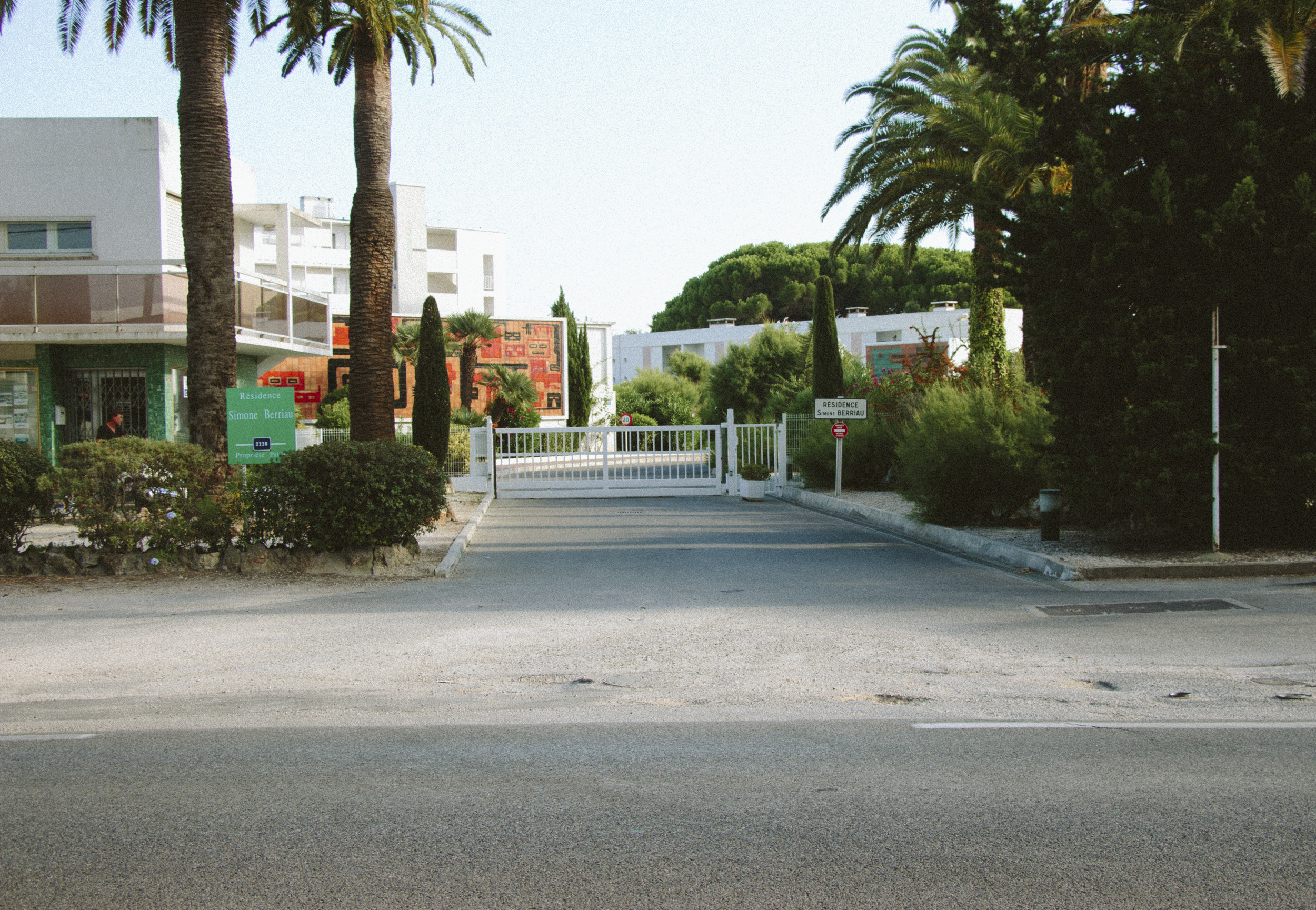
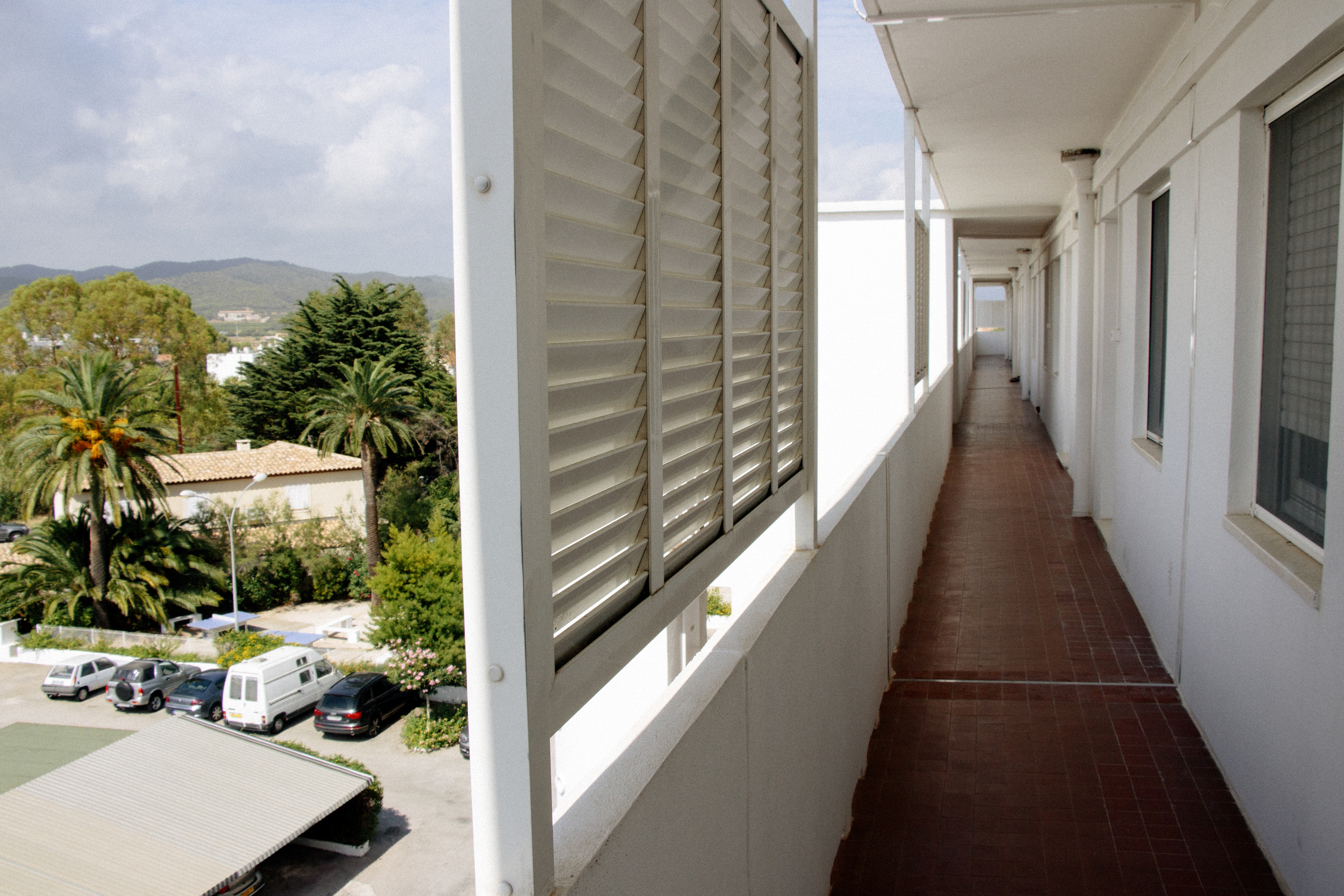
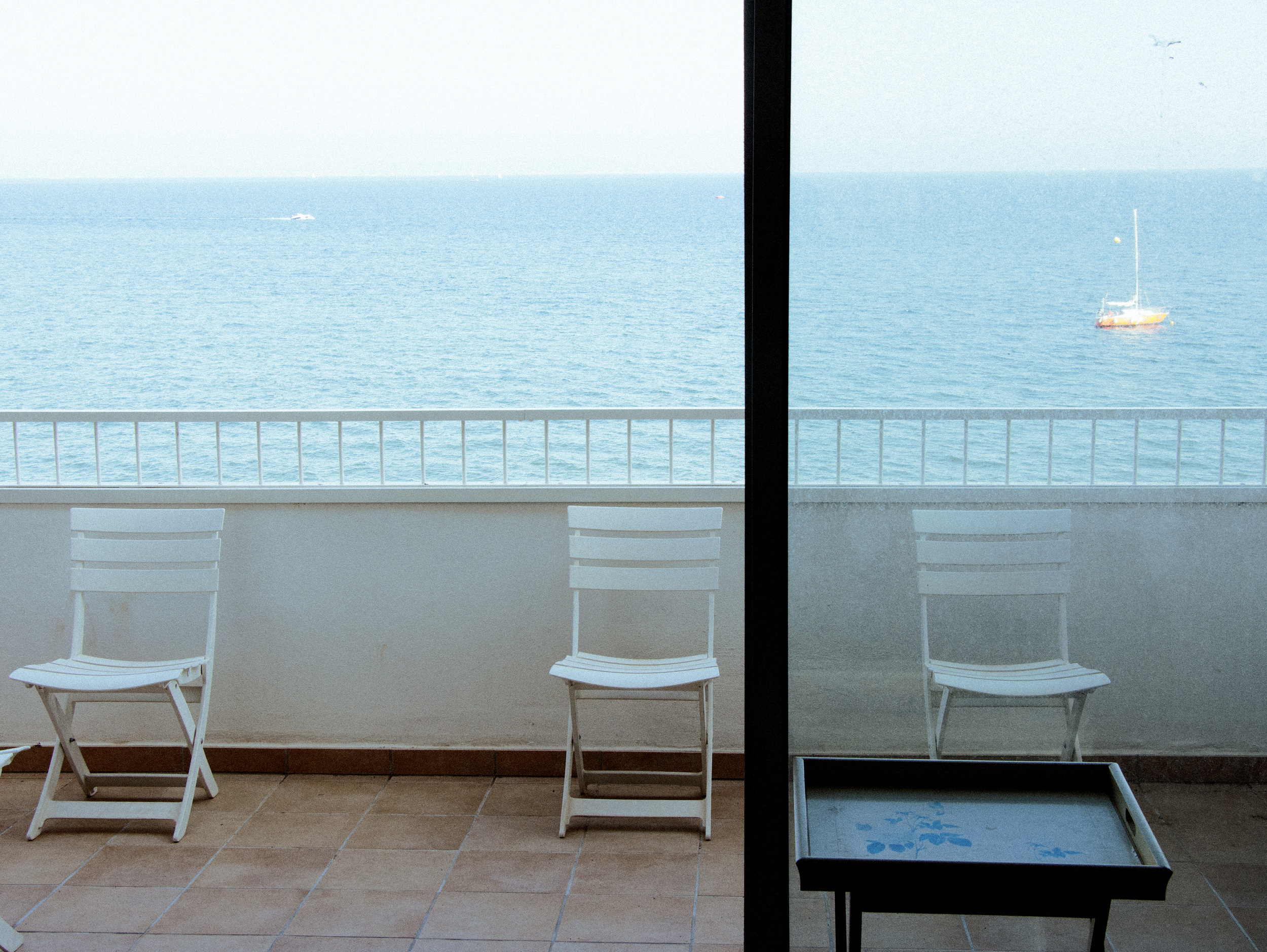
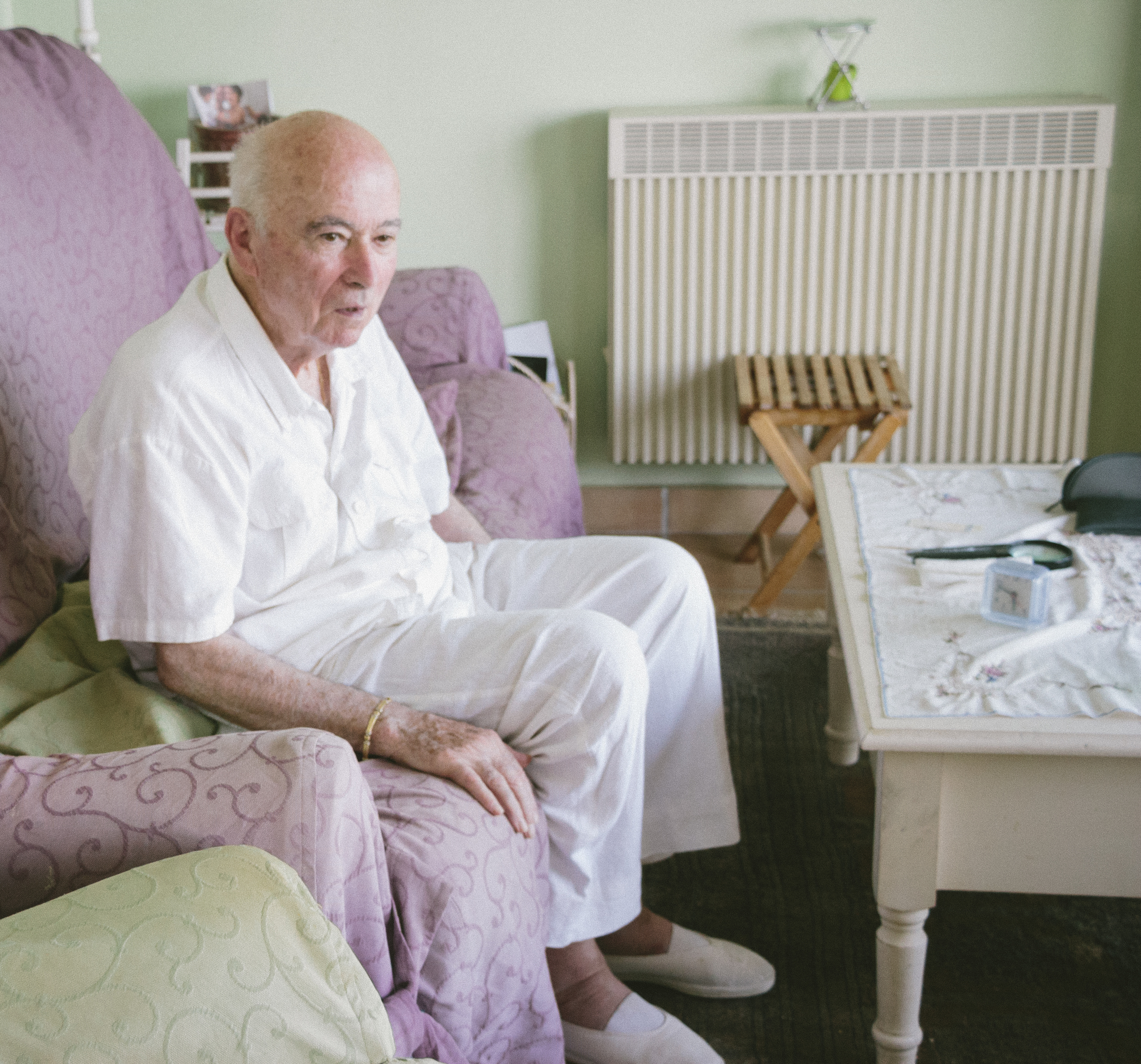









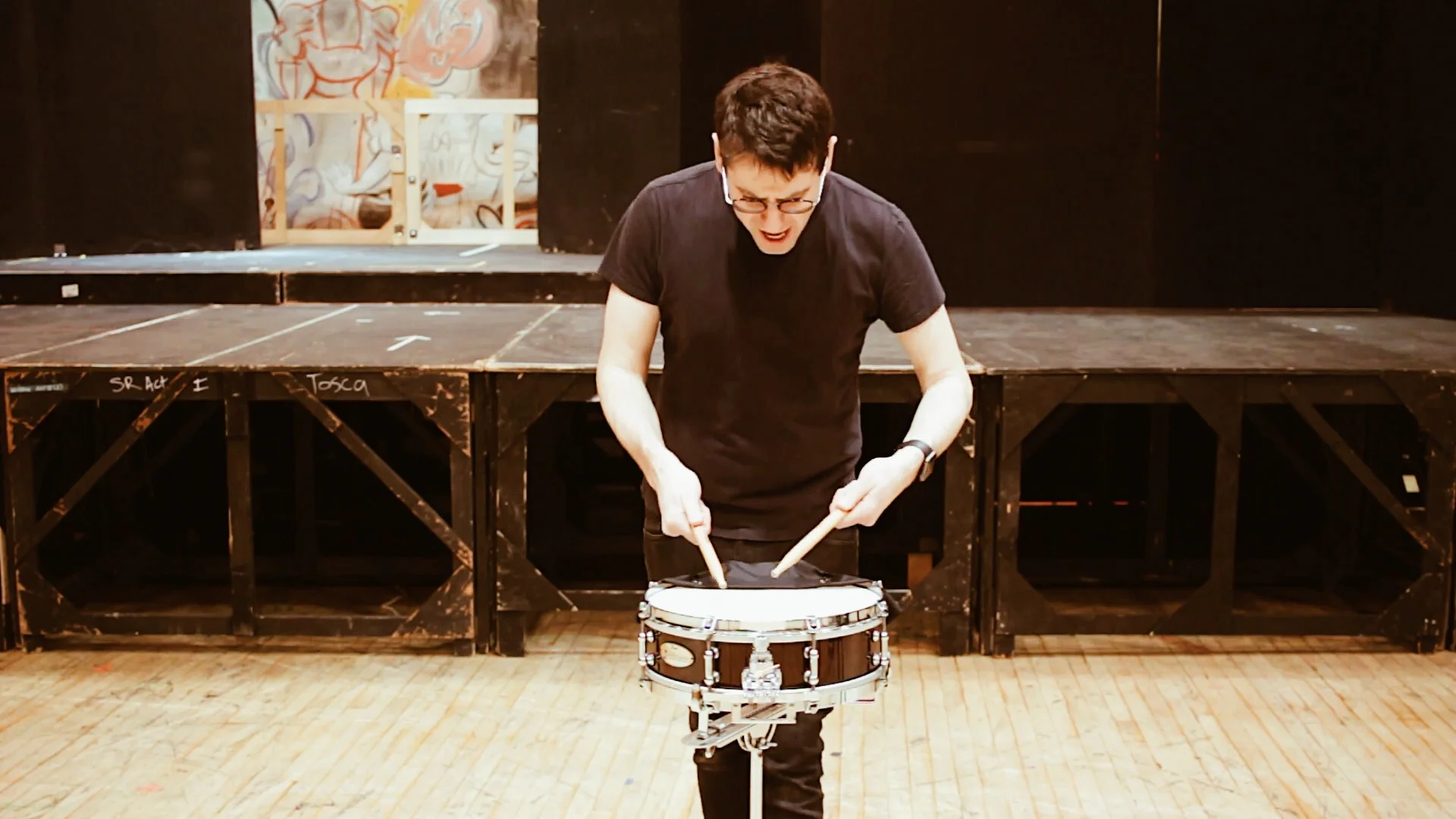
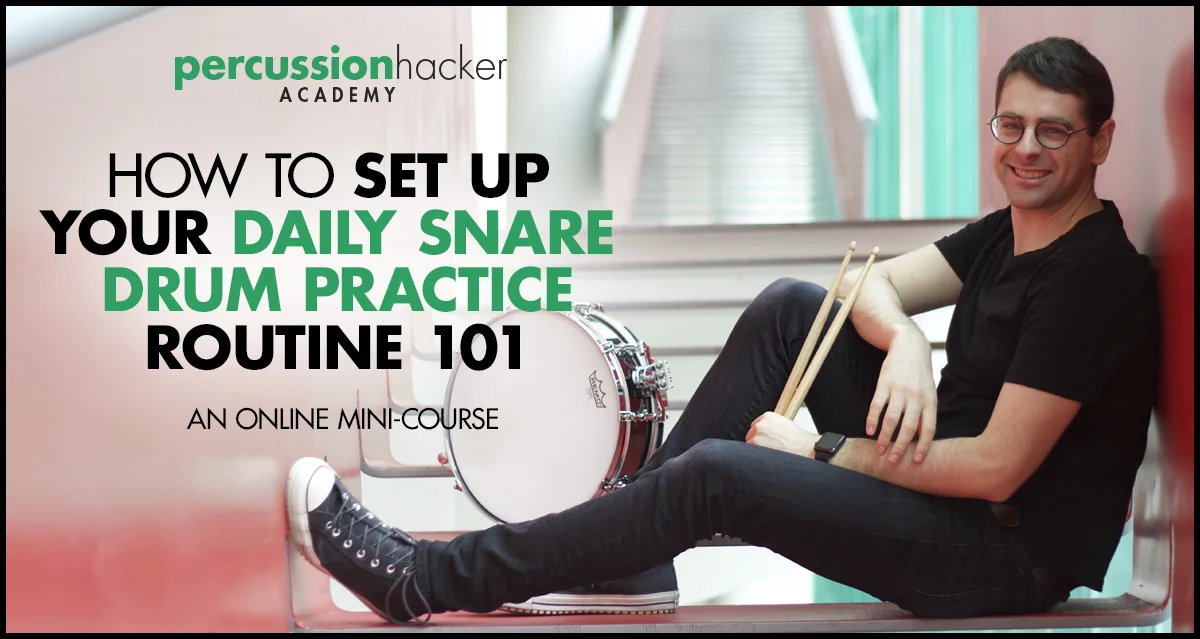



the snare drum seems like it could be the most boring instrument on earth. regardless, you still have to sound as musical as any violinist or oboist or trumpeter.
in today's video, i'm showing you 7 ways you can express phrasing and musicality on the snare drum.